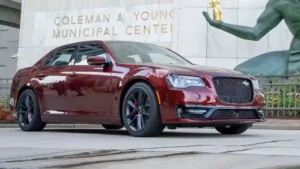Thorough Car Reviews, Industry Trends & Expert Buying Tips

When you’re on the hunt for a new car, thorough car reviews are essential. I mean, how else are you supposed to make sense of all the jargon thrown at you by car salespeople? Seriously. There’s a lot of shiny talk about horsepower, torque, and “incredible tech features” that, frankly, I have no idea how to use. But that’s where the car reviews step in. They tell you exactly what you need to know—without the fluff. Let’s dive into why these reviews matter, what the industry is up to, and how you can make smarter buying decisions without going overboard.
The Power of a Good Car Review
A well-written car review can save you from a buyer’s remorse so severe that you’ll be Googling “how to sell my soul for a reliable vehicle” by the time you hit the second payment. (Trust me, I’ve been there.) Here’s the deal: car reviews go deep. They cover everything from performance to reliability, comfort, and everything in between. And if you’re not the type to geek out over every little detail, that’s cool too—experts break it down so you don’t have to.
Take, for instance, how many vehicles are tested in various weather conditions. Here’s the kicker: your review should include tests in the rain, on steep hills, or when the weather is 100°F and your car’s air conditioning suddenly stops working. Yep, that’s a true-life story from my buddy Steve—his “sudden need for repairs” on the first hot day of the year still has him shopping for a new ride.
In a good review, experts will also compare models side by side, giving you insight into what car will actually make your morning commute smoother—or what one will make you want to pull your hair out. So, if you’re eyeing a shiny new sedan, reviews will help you figure out if it’s the next best thing since sliced bread or if it’s the automotive equivalent of that regrettable 2008 dance craze you wish you could erase from your social media history. (Yeah, I see you doing the “Soulja Boy” in that video, Brenda.)
Industry Trends: What’s New in the World of Cars?
Here’s the thing: the car industry is, like, in the middle of a full-on revolution right now. And no, I’m not talking about your high school friend’s “car” that’s actually just a glorified lawnmower with tinted windows. I’m talking about the rise of electric vehicles (EVs). Everyone and their grandma is trying to make a Tesla knockoff these days. Heck, even the local Ford dealership has a “new electric model” on display—one that I swear looks like it could fly if you gave it a little encouragement.
But don’t just take my word for it—EVs are everywhere. It’s like a slow-moving tidal wave, and if you’re not ready for it, you’re gonna get drenched. New electric models are launching left and right, and guess what? Charging stations are popping up like Starbucks in a college town. The shift towards electric cars isn’t a passing fad—it’s here to stay.
I once had a debate with my uncle about EVs. He said they’re a passing phase. Fast forward to two years later, and he’s texting me from his brand-new electric SUV, telling me how he “regrets not switching sooner.” Yeah, sorry, Uncle Frank. We all told you so.
Beyond EVs, we’re also seeing a rise in advanced tech. It’s like every car now comes with so many sensors and cameras that you could mistake it for a spaceship. (Some of the cars have more sensors than I have working brain cells on a Monday morning.) Things like lane-keeping assist and automatic emergency braking are quickly becoming standard. It’s like having a second set of eyes on the road—but without the pressure of explaining why your passenger is always clutching the armrest.
Self-driving cars are also in the mix. I have to admit, every time I see a car zipping around with no one behind the wheel, I get a little “Terminator” vibe. But hey, maybe one day I’ll be sitting back, sipping coffee, and letting my car do all the work. Until then, I’ll keep my hands on the wheel, thanks.
Expert Tips for Car Buying: How Not to Mess It Up
Alright, so let’s say you’ve done your homework. You’ve read some car reviews. You’ve marveled at how much better your car’s safety tech is compared to the Flintstones-mobile your parents used to drive. But before you start picturing yourself cruising in a brand-new ride, here are some expert tips to make sure you don’t end up with a lemon.
1. Know Your Budget and Stick to It
Here’s a little secret I learned the hard way: You can’t buy a car just because you “like” it. Yeah, I fell in love with a convertible once. Spoiler alert: that was not in my price range. The payments, the insurance, the gas—it all added up faster than I could say “I should’ve checked the reviews.”
When you’re setting your budget, think beyond the sticker price. What’s your monthly payment going to look like? How much will gas cost? Don’t forget about insurance. If you’re looking at a sporty car with a high repair bill, you might want to rethink that “dream car” situation. Trust me, your bank account will thank you.
2. Read More Than One Car Review
Okay, real talk. You can’t just rely on one car review—especially if it’s from a site that also sells you the car. Think about it. Would you trust a food critic who also owns a restaurant? Nah. Look for independent sources, and read reviews that dig into the details. And don’t forget the real-world experiences. Sure, the car might do well in crash tests, but how does it handle in a snowstorm, or after you’ve dropped a McDonald’s fry under the seat? Y’know, the important stuff.
3. Take It for a Test Drive
No, really. This is the most crucial step. I’ve spent hours researching cars online, only to realize that the one I thought was perfect actually made my legs cramp after five minutes. It’s like dating—you gotta feel it out. Go test drive a few cars, and make sure they’re comfortable for you. It’s about more than the specs on paper. I don’t know about you, but I’ll pass on a car that feels like a toaster oven in traffic.
4. Don’t Overlook Resale Value
I always think about resale value, because let’s face it—cars are not forever. Just ask my old Honda Civic, which had a date with a mechanic who said, “Well, it could keep running, but it’s probably going to cost you your firstborn.” Check the resale history for the car you’re eyeing. Is it a reliable make? Will it hold its value in a few years, or will it drop like my friend Dave’s stock portfolio after 2008? Yeah. You don’t want that.
5. Total Cost of Ownership
It’s not just about the car’s price tag. It’s about what you’ll spend on it in the long run. Gas. Maintenance. Repairs. Tires. More tires. Just when you think you’ve got it figured out, you’ll get hit with a “check engine” light and you’ll want to cry. Make sure to calculate these costs—especially if you’re eyeing a luxury brand that likes to nickel and dime you on parts.
6. Look for Deals
When I bought my last car, I stumbled upon a “special deal” I didn’t even know existed. Turns out, the dealer was running a promo that offered extra perks, like free maintenance for the first two years. It wasn’t something they advertised outright, but once I asked, they gladly threw it in. Don’t be afraid to haggle. The worst they can say is no, and you might walk away with a better deal.
Wrapping It Up
So, there you have it. Car reviews. Industry trends. Expert tips. It’s a lot to digest, but if you take the time to read, research, and think critically, you can make sure that your next car isn’t going to leave you stranded on the side of the road (metaphorically or literally). Good luck, and may your next ride be everything you dreamed of.







